QuestionQUESTION:
I have a female African Grey that is about a year old. I have had her
since November. She is very sweet..always steps up and we have not had
any major issues except for clumsiness. The other day my husband went to
get her from her playstand to put her to bed and she totally freaked
out. She fell on the floor and kept hopping around. I thought she had
hurt herself..she has had a couple of feathers sticking out but that is
nothing unusual. I tried to get her to step up to me which is never a
problem because she tends to favor me. She would scream and hop and acted
TERRIFIED. My husband finally covered her with a towel and put her in a
cage. We were both baffled as to what frightened her..we could not
figure it out. NOthing different was going on. I thought maybe she was
afraid of his yellow shirt...but she wouldn't even come to me when he was
out of the room. I left her alone for the rest of the night. The next
morning she came to me and wanted me to scratch her neck and acted like
her self. I left for awhile and came back a couple of hours later and
she was acting terrifed again. When I come close to her cage she will
flap her wings and throw herself to the bottom of the cage and scream like
I have never heard her before. She does the same thing to my husband. I
tried giving her treats..she throws them on the floor..she takes them
from me occasionally. This all started on Friday eve. I have tried
ignoring her when I am in the room with her...I watch her when she cannot
see me and she doesnt act sick ..only scared to death. I am so worried
and upset ..I do not know what to do. I talk to her from another room and
she does ok with this.
ANSWER: Your little girl is still a very young bird. It's difficult to remember this when they look so full grown so fast - but given the number of years you can hope for (more than 50-60 years for Greys) - a year old bird is barely a "toddler".
Sometimes there's absolutely no rhyme or reason for what we see as very odd behavior. It could be something as subtle as how she perceived your husband while he was interacting with you at some other time, or even his tone on the telephone, reacting to a t.v. show, only your bird knows for sure.
What happened next is that she got extraordinary "feedback" for her actions. Everyone was upset, things were very different and a towel came at her ! No matter how much we try to desensitize our birds to the dreaded towel, it's akin to someone wrapping us up so we can't move or defend ourselves. Even if they mean no harm, we're in full panic!
If you have to towel a bird, always come at them from below or at their eye level on the sides - never from "over" them like a predator would.
So now we have a bird who had a 'little' problem to begin with - received a bunch of mixed signal attention (the toweling was probably a negative) - and currently isn't sure what's what or who's who.
Let's start again.
Go back to your regular routine with her and the thing to ignore is the biting. A secret that we wrangler and rescuers know is that a bird stops biting once they realize they aren't running the show. Certainly, that means you may be bitten at first, but once you get the step up, you should be ok. IF she bites your arm while on it, just "earthquake" her. Shake your arm just enough to distract the bite, but not drop her. It's important that she know your arm is safe.
ONLY ignore negatives. If a bird screams and you know everything is ok (just like you would double check a baby when it cries) - let it be. BUT the minute (second) she stops doing the negative, you must interact with her, praise her and be pleasant.
The biggest insult to a bird is when we turn our backs and stop all the noise (turn t.v. to mute/off, simply stop everything).
You can try 'socks' for your arms until you're more confident again about interacting with her. Cut the toes out of a pair of old, thick socks and layer them onto your arms or under a shirt. It won't stop the sting of the bite, but it'll be tolerable and once she realizes she's not in control - it will stop.
Check my page for more about modifying behavior (there's more room there and even photos).
The BEST news is that she's still young, she's had a wonderful family and a few days does not a lifetime problem make
: )
www.4AnimalCare.org (click on 'birds')
---------- FOLLOW-UP ----------
QUESTION: Thanks so much for your info...that was very helpful..One thing though..she has not bit us ..she just acts extremely terrified. She let me change her cage liner last night and didn't flop around the cage...I did not look at her or talk to her. I only talk to her from a distance to see how she is going to respond. I can hear her talking again when I am not around and she is eating and playing etc. Should I just continue what I am doing until she seems ready to let me get her out of her cage again.
I am going to submit another question to you later about my Blue Head Pionus...you are so helpful..thanks
ANSWER: At least she's getting calm again. Try the nighttime technique I use for our new additions (approaching the cage in subdued light about an hour after their 'bedtime' and mimicking their body passive body language, etc).
Here's a direct link http://www.geocities.com/animalrelief_info/
It's called 'screaming' behavior modification, but it will work with what you're describing too.
Looking forward to talking with you more.
---------- FOLLOW-UP ----------
QUESTION: I need your help!!! It has been a week and she is still terrified of me. I can talk to her from a distance most times but as I start to get close she will raise her wings half way and "fledge" them...I guess that is what you call it..she looks like she is shaking them but not a full flapping of them...hope this makes sense..If I get to close..she throws herself on the bottom of her cage and screams..her eyes are wild looking...It is so horrible.. I tried putting my hand on the cage bottom once she threw herself there and told her to step up...she just continued screaming...Do you think I should wrap her in a towel and hold her and try to comfort her that way...PLEASE HELP>> I cannot stand this. I sat by her cage the other day for a long time and talked to her. She was calm and even took a treat from my hand..I want her back!! :(
AnswerIt sounds like she's becoming "cage bound", something that happens when just one incident escalates into a full on battles of wills. Even she probably doesn't remember why she was first wary or afraid. All she knows now is that you do this, she does that - the routine is established and she's comfortable with it, even if it's not a pleasant one.
Toweling to control a bird is something we truly reserve for extraordinary circumstances like certain parts of the vet examination or other emergencies; however, if this is what it will take for you to get her OUT of the cage, just remember to come at her from below or the sides with the towel, never from over the top like a predator. Also, release her from the towel as soon as possible.
Before you return her to her cage, change it around. Move it from one spot to another in the room if you can, but even if you can't do this, at least change the interior. Put the perches in different spots or add a new perch - mix up the food bowls or put in new ones - remove the toys and replace them with something different.
The point is to give her a brand new looking environment when she has to return to it, something less familiar.
Once you have her out, reward her, praise her and let her find something very pleasant about being out so she'll want to do this every day.
Then you have to do it every day (let her out). As you can see, this is essential. Young birds are very easily set in patterns like this.
I'd hate to think that she's actually behaving like a chick and you're misinterpreting it as anger. Part of what you describe sounds like what a baby would do to attract attention in the nest and be fed. This would include making squawking noises while wings are slightly held out to the sides and fluffed - head up, mouth open and bobbing. As your hand approaches the bird may seem to lunge or 'bite'.
It doesn't much matter now though - you've established a pattern of action and reaction that needs to be interrupted. Hopefully these suggestions will get it going in the right direction again.
I'm still with you!

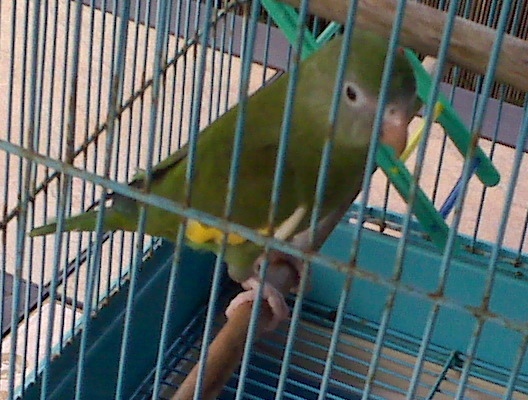 What type of parrot is this?
Question
Friendly bird
A week ago ths small parrot flew
What type of parrot is this?
Question
Friendly bird
A week ago ths small parrot flew
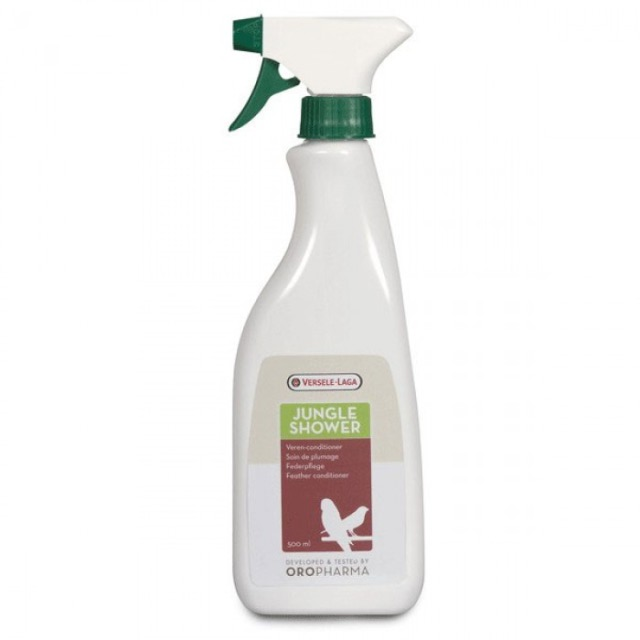 Indian Ringneck Health Issue
QuestionI have an Indian Ringneck who had been neglecte
Indian Ringneck Health Issue
QuestionI have an Indian Ringneck who had been neglecte
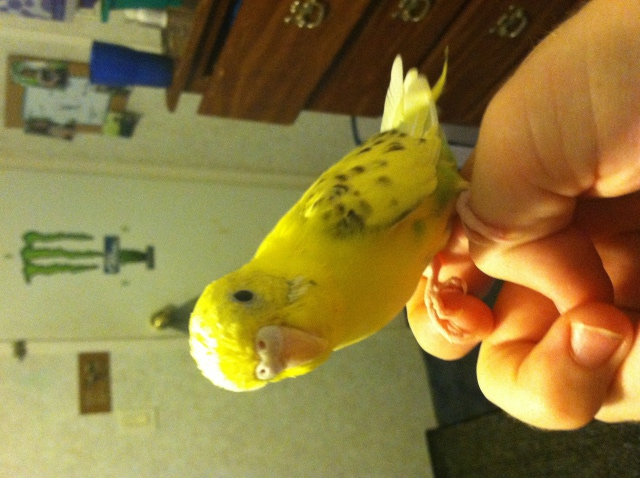 Parakeet gender
Question
Parakeet
Hi, I looked for an expert und
Parakeet gender
Question
Parakeet
Hi, I looked for an expert und
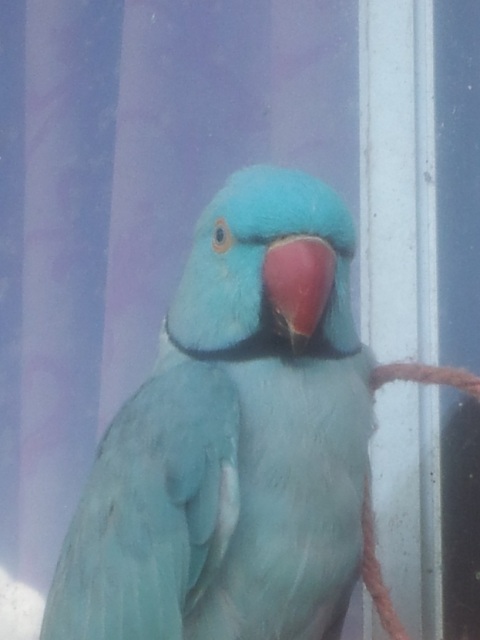 RE: Indian Ringneck probems
Question
Indy our Ringneck
Thank you for your he
RE: Indian Ringneck probems
Question
Indy our Ringneck
Thank you for your he
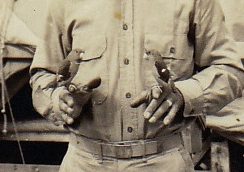 ID Birds
Question
Panama Birds
My uncle served in Panama in 1941
ID Birds
Question
Panama Birds
My uncle served in Panama in 1941